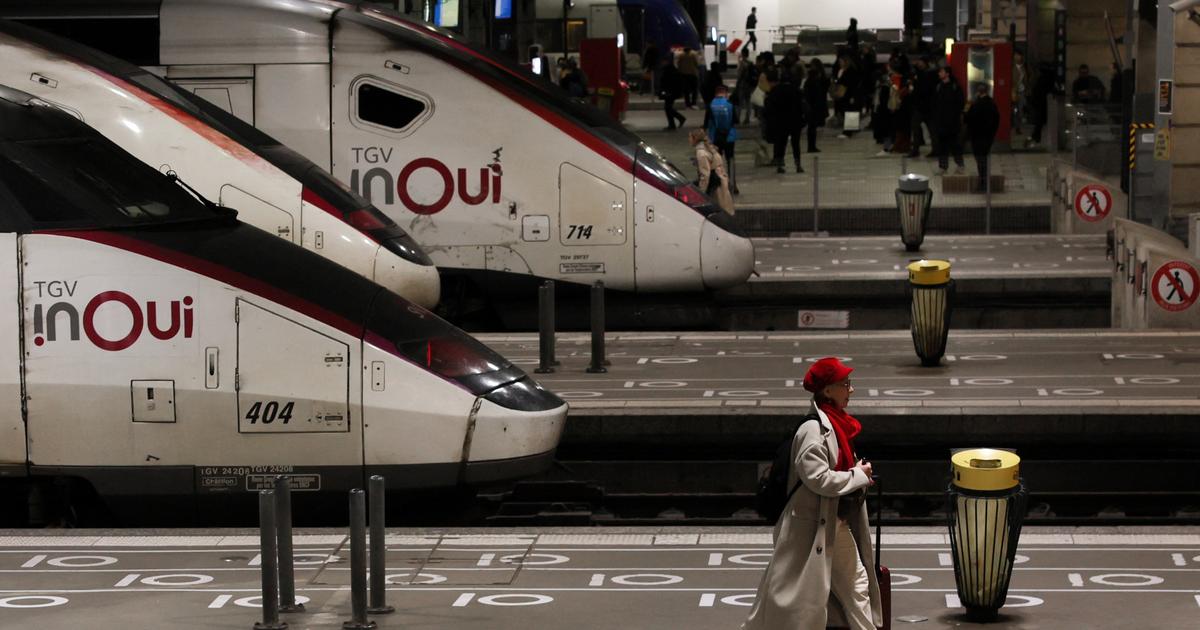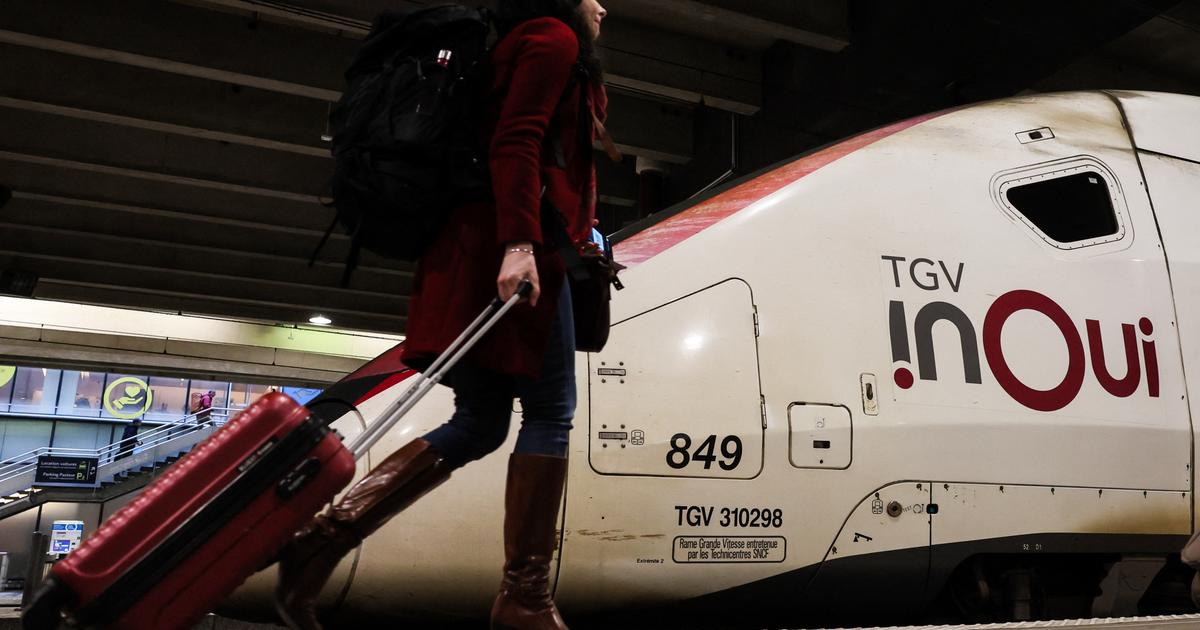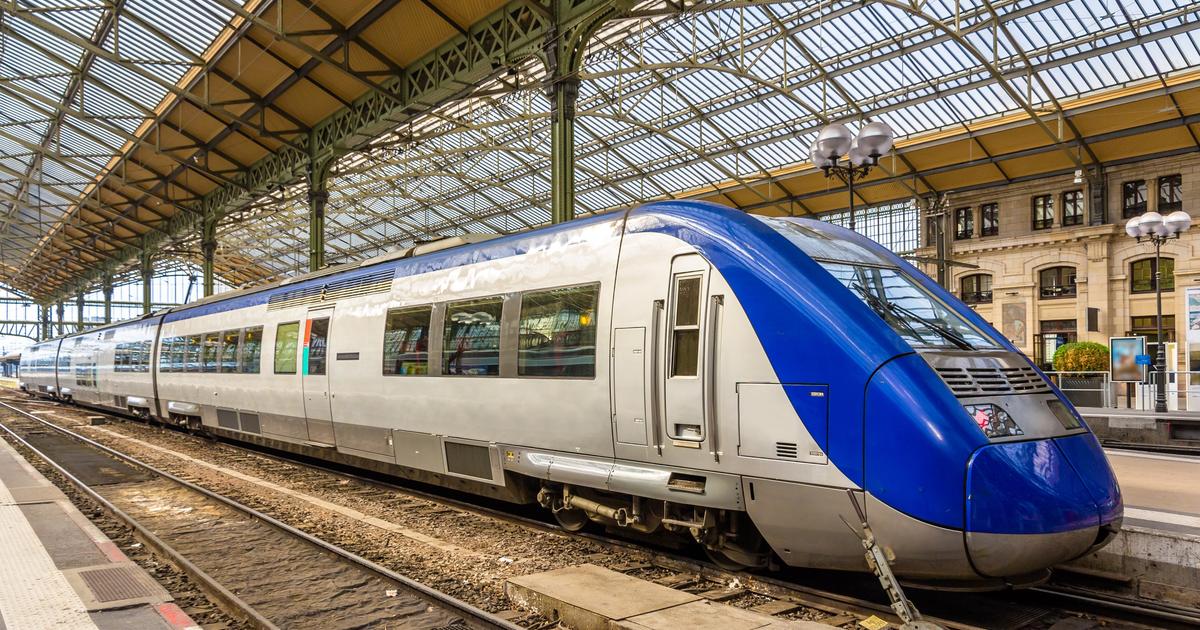40 years ago the first TGV journey between Paris and Lyon was inaugurated.
Since then, high-speed lines have continued to constitute an essential lever in regional planning and strengthened the capacity to attract the cities served.
Mobility disrupted by the pandemic, the SNCF even recently created “My Annual Telework Package”: “It already works with frequent travelers between Paris, Lille, Tours, Le Mans or Reims, details Alain Krakovitch, director of Voyages SNCF.
But we are also targeting Rennes, Nantes, Lyon, Bordeaux and Marseille.
"
So many metropolises benefiting from the impact of the TGV on their attractiveness, which is still growing with the rise of teleworking. "The advantage of the train compared to the plane is that you can arrive at the last moment
"
, underlines Alain Krakovitch. In addition, the management of reservations is flexible and these are, in general, links from center to city center. The neonomads therefore save time and can advance their files on board the trains. "In Le Mans, a company even counts the train journey as working time," notes Alain Krakovitch. It is also essential that we offer coworking spaces to our customers in stations. "
As a consequence of the TGV effect, these occupy strategic positions.
Thus, Start Way, founded in 2008 and which very early on focused on setting up in the regions, opened a third of its 35 shared office sites near railway stations.
"For example in Dijon or Lille, this allows the headquarters of his company to
come to you
, in a context of decentralization of the workforce
"
, notes Grégory Ortiz, co-founder and CEO of Start Way.
In this SME of around 40 employees, only the accountant has a fixed office.
“I manage my teams remotely,” continues the CEO.
I go to meet them in our spaces near the stations, it is very practical.
"
Reims less than an hour from Paris
The development of remote work and the appearance of semi-main residences could revive certain TGV stations located in the open countryside. Like that of Haute Picardie, at the intersection of the Amiens-Saint-Quentin and Arras-Compiègne axes, long known as the “beet station”. The new wave of TGV effect, in the wake of that which carried the big regional capitals, benefits intermediate-sized cities: Angers, Le Mans, Angoulême, Valence, Tours ... Long in the shadow of their imposing neighbors, like Nantes, Bordeaux or Lyon, they are more and more popular because they are on a human scale and combine promising economic sectors, quality of life and accessibility.
This is also the case for Reims, with the double TGV service: that of the city center and, 5 km away, the other called Champagne-Ardenne, both connected to the capital in less than an hour. “Close to Paris, far from its prices! enthuses Jean-Yves Heyer, managing director of the economic development agency Invest in Reims. Our city is experiencing a resurgence of attractiveness as companies seek to save money while being well connected to decision-making centers. The TGV reassures them, even if it is not a panacea: it is a necessary condition but not sufficient. The dynamism of the territory, the solidity of the economic ecosystem and the employment pool are essential.
Are we going to be able to recruit locally?
is the first question asked.
»To travel at high speed, you have to combine long-term work to find success ...
SNCF treats teleworkers
To capture the “nomadic potential” of teleworking enthusiasts, more and more numerous since the start of the pandemic, the SNCF launched, in September, an offer dedicated to these new “commuters”, between distant home and occasional office.
“My annual teleworking package” is intended for those who travel two to three times a week with TGV Inoui and Intercity trains.
The subscription includes 250 tickets per year, valid from Monday to Thursday. “Indeed, we have noticed that Friday is a day often teleworked and that, consequently, many trains are full from Thursday evening, and no longer from Friday evening or Saturday morning, explains Alain Krakovitch, director of the SNCF Travel entity. The proposed rate is interesting since it costs 40% less than our classic annual plan. "
The amount depends of course on the class chosen and the distances traveled but, according to the estimates given for example by the SNCF, for second class journeys between Nantes and Paris, the monthly payment is 333 euros against 555 euros with the classic subscription. or 343 euros between Lyon and Paris against 572 euros.
"Teleworking agreements in companies can include a partial reimbursement of this subscription", specifies Alain Krakovitch.
For more flexibility, given new uses and lifestyles, it is possible to exchange tickets for free, even on full trains, and to anticipate reservations for up to two months.














